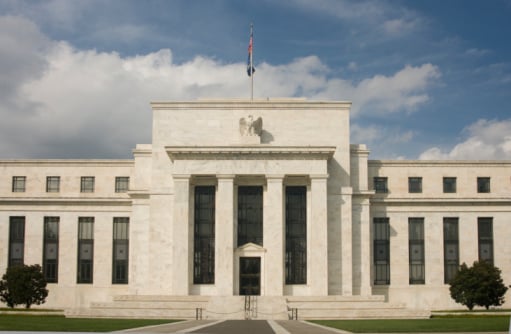Investing
Slow U.S. Growth: Is the Issue Monetary or Fiscal Policy?
Published:
Last Updated:

Dudley is referring, of course, to the $85 billion cut in the federal budget that resulted from Congress’ failure to reach a new spending deal. He notes six improvements in the fundamentals of the U.S. economy:
The impact of the payroll tax increase that took effect at the beginning of the year, along with the income tax rise, the rise in taxes related to Obamacare, and the sequester will cut 1.75 points of U.S. GDP in 2013, according to Dudley.
To get the U.S. economy growing at a faster rate, Dudley thinks that fiscal policy “would start with a very mild degree of restraint in the near-term that would credibly build to substantial consolidation over the next several decades.” That’s the job of Congress. Dudley goes on:
Instead, we have nearly the opposite: significant retrenchment in the near-term, but no credible action over the long-term, with partisan divisions and significant uncertainty about what will happen next. Will the sequester, for example, be sustained or not?
Weakness in the labor market continues, especially in the employment-to-population ratio and the low job-finding rates. Dudley supports tying asset purchases to employment goals but does not favor implementing a threshold similar to the inflation guideline the Fed has adopted.
Dudley also addresses what effect current Fed policy will have at the time that the asset purchases stop. He denies that inflation will rise, saying that the Fed’s ability to pay interest on excess reserves “ensures that we can control the credit creation process and prevent an upsurge in inflation.” He also denies that higher interest payments on excess reserves are subsidies to banks. Third, he denies that the Fed will be slow to tighten monetary policy because doing so would cut the central bank’s remittances to the Treasury. As he says, the Fed is not an asset management company.
Dudley’s speech is available here.
A financial advisor can help you understand the advantages and disadvantages of investment properties. Finding a qualified financial advisor doesn’t have to be hard. SmartAsset’s free tool matches you with up to three financial advisors who serve your area, and you can interview your advisor matches at no cost to decide which one is right for you. If you’re ready to find an advisor who can help you achieve your financial goals, get started now.
Investing in real estate can diversify your portfolio. But expanding your horizons may add additional costs. If you’re an investor looking to minimize expenses, consider checking out online brokerages. They often offer low investment fees, helping you maximize your profit.
Thank you for reading! Have some feedback for us?
Contact the 24/7 Wall St. editorial team.